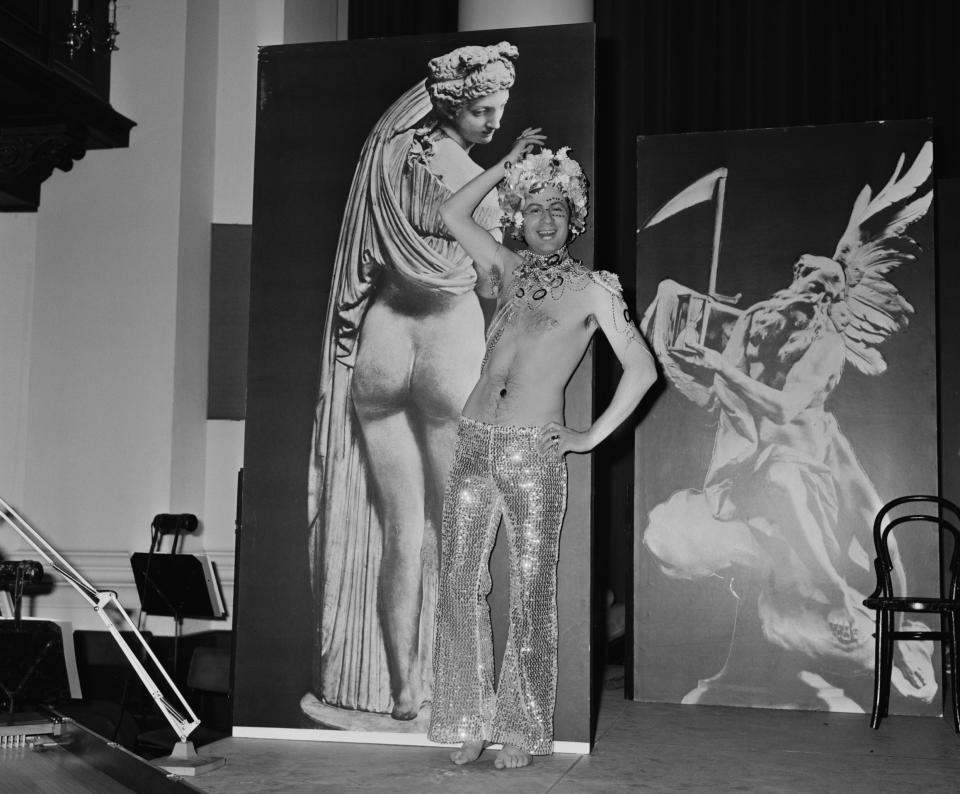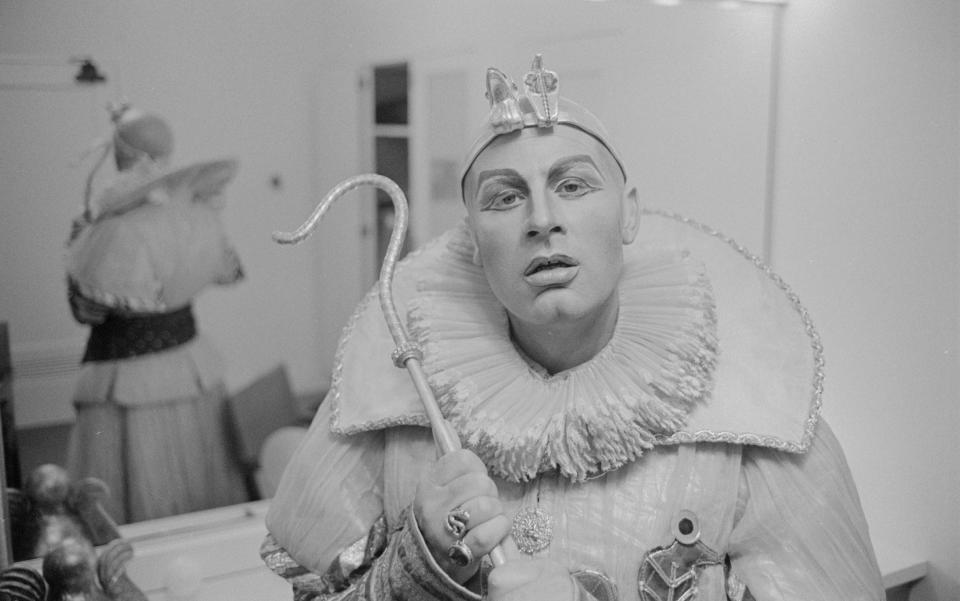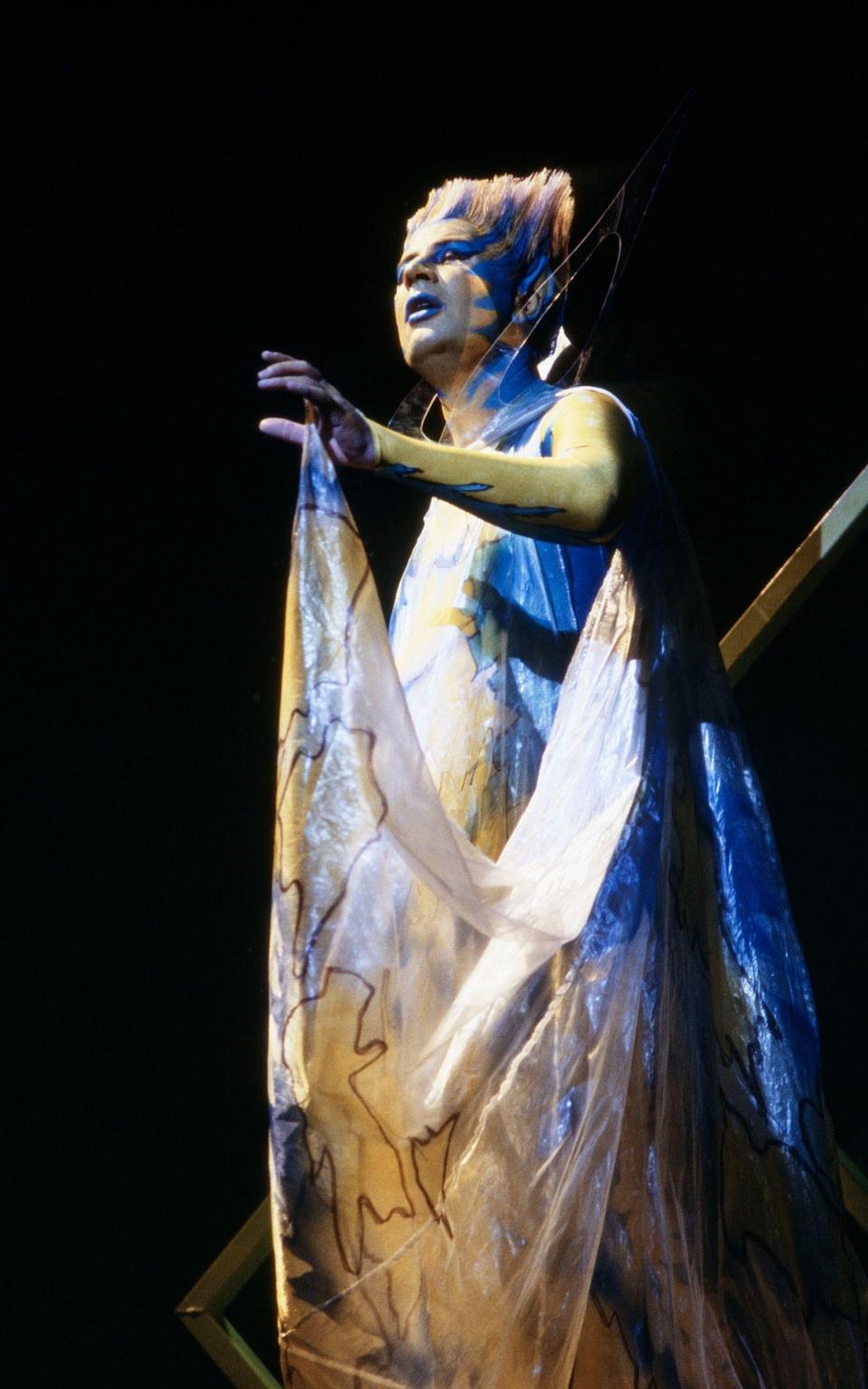James Bowman, acclaimed countertenor taken up by Benjamin Britten to sing Oberon and the Voice of Apollo – obituary

James Bowman, who has died aged 81, brought a much-needed dose of glamour to the public perception of the countertenor voice; he succeeded Alfred Deller as Oberon in Benjamin Britten’s opera A Midsummer Night’s Dream, became the first countertenor to perform at Glyndebourne, and was the soloist in Purcell’s Celebration Ode during the opening concert of the Queen Elizabeth Hall in 1967.
His operatic repertoire covered a wide range of eras, from Monteverdi and Vivaldi to the Priest-Confessor in Peter Maxwell-Davies’s Taverner, in which he made his Royal Opera House debut in 1972, and Astron, a psychedelic messenger, in Michael Tippett’s The Ice Break (1977).
The latter was one of his favourite roles, though the director Michael Geliot once told him off for singing too beautifully, adding: “Remember, you’re a heap of vomit on the floor; make a noise like it.”

Bowman’s voice was firmly of the baroque era, an unadorned line devoid of all hints of vibrato and typical of what he called the “British school”, which he contrasted mercilessly with foreign countertenors. The Americans, he said, like a brash, wobbly sound; the Germans tended to be overdramatic, though not as hysterical as the Americans; and the French style was insufferably affected, “a stabbing at the notes”.
He was the joint dedicatee with Peter Pears and John Shirley-Quirk of Britten’s fourth canticle, Journey of the Magi, which was first heard at the 1971 Aldeburgh Festival. The composer also wrote the Voice of Apollo for him in his final opera, Death in Venice (1973).
Of all the Britten works, however, he was most closely associated with Dream. He made his stage debut at Snape Maltings in 1967 as Oberon, though said his costume was horrible, prickly and made him look like a pineapple. Although Deller had detested the role, Bowman adored it. Later the critic Felix Aprahamian described him as “Deller’s worthiest successor”.
Oberon was a part of his life for the next couple of decades. There was “a funny production full of Druids” for Welsh National Opera, a more traditional one for Scottish Opera and Peter Hall’s magical staging for Glyndebourne that he enjoyed for Bernard Haitink’s sensitive conducting.
Overseas there were some colourful Dreams, including one in Australia directed by Elijah Moshinsky “in which I flew backwards and forwards on a wonderful machine”, he told The Observer. In Strasbourg the fairies were little girls and Bowman spent much of the opera beating them with a riding crop.
James Thomas Bowman was born in Oxford on November 6 1941, the youngest of two sons of Benjamin Bowman and his wife Cecilia (née Coote) whose marriage ended badly when James was four. He was educated at the King’s School, Ely, and by the age of seven was at Ely Cathedral, eventually becoming head chorister. When his voice broke he retrained as a countertenor.

This was an unusual move for a teenager, especially in those less diverse days. But Bowman felt comfortable. “We’re not all lisping faggots – we’re a down-to-earth bunch, who just happen to like singing in a high register,” he told The Sunday Telegraph.
He scraped a fourth in History at New College, Oxford, where Professor Hugh Trevor-Roper demanded: “Have you read any books at all?” As a choral scholar he was billed as a male alto, though Britten and Tippett insisted he was a countertenor. Bowman was adamant that they were interchangeable, adding: “There’s an awful lot of rot talked about the notional difference.”
While teaching at a prep school he began appearing with David Munrow’s Early Music Consort of London, soon becoming the ensemble’s star singer. Before long the harpsichordist George Malcolm had recommended him to Britten and his audition was held in the Crush Bar of the Royal Opera House.

By the late 1960s he was a lay vicar at Westminster Abbey, and in May 1970 made his Glyndebourne debut as a sheepskin-clad Endimione in Cavalli’s La Calisto with Janet Baker, conducted by Raymond Leppard. He also became a favourite of the conductor Charles Mackerras, for whom he gave a startling and powerful performance as Athamas in Handel’s Semele at the London Coliseum in November that year.
Munrow’s suicide in 1976 crushed Bowman’s confidence and he considered abandoning music. It took four years, including some awful recordings “which have mercifully been deleted”, before he got back on track. “If you’re a countertenor you’re a creature in a glass cage,” he complained.
He quickly tired of the opera stage, abandoning it altogether after a calamitous production at La Scala, Milan. “That place embodies everything I hate about the game – just noise and confusion and hysteria,” he said. Directors were to blame, he added, singling out Peter Sellars as “a menace”. Nor was he a lover of the lieder circuit, adding: “The singer coming on in tails, the dried flowers, the hushed, tight-arsed audience – it’s all unbearably twee.”
He was a Gentleman in Ordinary at the Chapel Royal, St James’s Palace, from 2000 to 2009 and continued giving recitals until 2011. For his farewell concert at the Wigmore Hall he was accompanied by the harpsichordist Mahan Esfahani in a programme that included Handel’s mischievous cantata Vedendo amor in which the continuo line characterises the stalking of an unfortunate lover.
James Bowman, an outrageous raconteur and inspirational colleague whose rich speaking voice belied the effeminate tones of his countertenor, was appointed CBE in 1997.
His great pleasures in life included model railways and sailing on the Queen Mary 2 with his partner, Terry, who survives him.
James Bowman, born November 6 1941, died March 27 2023

